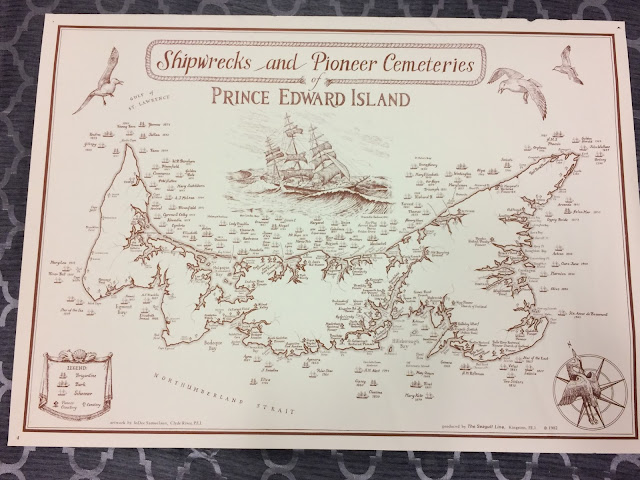Why Comparing Storms is Difficult
At the time I started this post, Fiona hadn't hit the Maritimes. It was Friday evening and it was raining. Not heavily, you could barely even see it. Based on a suggestion from a friend, I thought about looking up some previous hurricanes/storms and comparing them to Fiona. But, I realized after the storm there were major challenges with this idea. In the coming days and weeks, you'll likely see and read articles comparing Fiona to storms like Dorian, Juan, maybe even older ones like the Yankee Gale.
So if you read an article comparing any storm from any period, here are a few things to remember that will really affect the comparison but that aren't always mentioned:
1. Geography- comparing storms is hard because they hit different areas of the Island differently. So how do you compare how Charlottetown was hit compared to Souris or West Point? They have different challenges and could have been affected differently ie. trees coming down versus flooding. Even if you ask people within these communities what they think the worst storm to hit PEI was, you'll likely get a variety of answers and a variety of reasons.
2. Nostalgia/age - The best way to describe this is with an example. Let's compare my experiences in Juan, which hit PEI in September 2003, and Fiona. when Juan hit, I was 12-years-old. At 12, my concerns were essentially finding things to do to fight off boredom (as we went a few days without power), wondering if reading books by an oil lamp would hurt my eyes, etc.
For Fiona, I was concerned about being in a mini-home surrounded by trees. I had to worry about what food was going to be thrown out, how much this food was going to cost, deciding we are getting a generator when we move into our house (fingers crossed for this week - power outages make closing complicated!) etc.
Even if Fiona had been closer to Juan in the sense of wind speeds and damage, my concerns likely would still have been the same.
3. Government response - How the government responded would also play a role. For example, how soon after the storm was garbage collected? How quickly did they get the roads cleared? How quickly were shelters put up and did they ensure people found out about those shelters?
4. Telecommunications - storms can be easier to manage if you can still communicate with friends and family. For Fiona, myself and many lost complete connection to their network. For a while, I had absolutely no connection. Not even the "Emergency calls only" line was present on my cell phone screen. We also couldn't get a clear radio signal. So any important messages or informational updates coming through the radio were not being received by us (or many). In addition, for many, their landlines also went down.
This led to people worrying about friends and family and if they were concerned about how much longer the high winds around them would last they couldn't get that information.
5. Historical aspect - Can you compare any modern-day storm to a historical one? Depends, but there would need to be a lot of caveats to consider.
- Death toll - where did the storm hit? Did it go over a highly populated area or more rural? Were there any other issues that could have contributed to the death toll - for example, was there a bad flu going around that could have prevented people from having the strength to get out of their homes? Did the government or local group set up shelters for areas they knew would be high risk? How much warning did people have?
- Forecasting a storm- If you look at historical storms that hit the Maritimes, such as the Yankee Gale in 1851, there was no meteorologist looking at forecast models and warning people weeks ahead of time. These forecast models enable us to prepare ahead of the major weather system. These are systems they didn't have in 1851, which was one of the main reasons the Yankee Gale was so deadly. It was one of those storms that came in fast, catching many ships unawares.
- Measuring systems - Technology has made it much easier to tell what the wind speeds are at the moment and how much rain had fallen so far. For storms like the Yankee Gale (1851) or the August Gale (1873), this was much harder and more inaccurate.
And this last point is a bit of a rant, I will admit
6. Sources - Where are you getting your information? This isn't to say you can't get good information on social media or even Wikipedia. Like many things, it's a mixed bag of good and bad information. If the person sharing information is known for dramatizations or really downplaying an issue, don't use them as your only source. Ask questions and try not to only read information that supports your current understanding or opinion. Also, and I cannot stress this enough, if you are getting information on social media - Facebook, Youtube, or TikTok, etc. - for anything historical, do they list their sources! I find this is especially bad on YouTube shorts (and by extension TikTok as the videos are often posted on both) especially around historical clothing and corsets.


Comments
Post a Comment